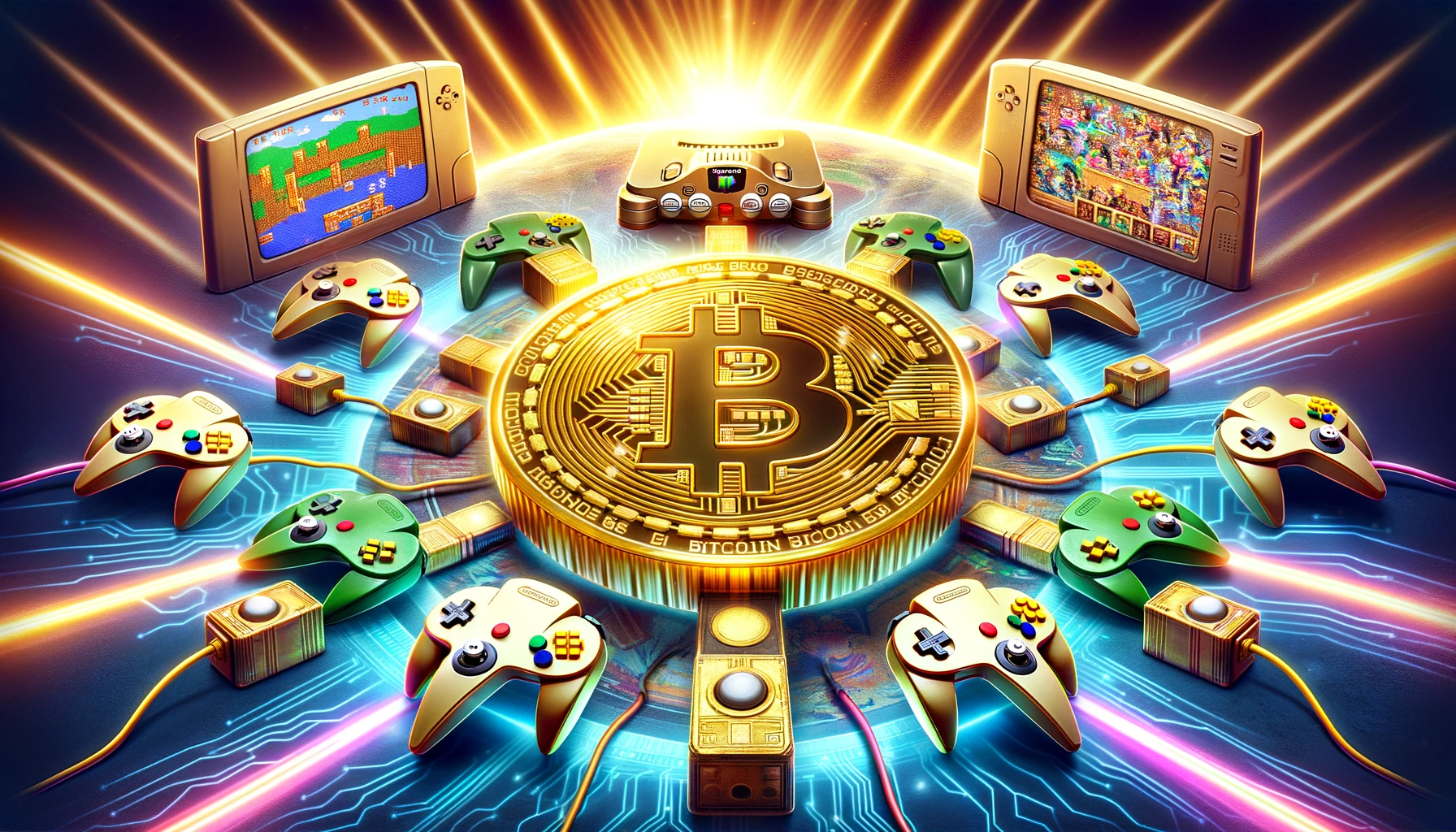
A group of technology pioneers known as “on-chain ninjas” have registered an emulator for the famed Nintendo 64 (N64) video game console on the Bitcoin network.
This initiative is part of a larger campaign aimed at preserving classic video games using blockchain technology. Trevor Owens, CEO of Bitcoin Ordinals portfolio tracker Ninjalerts, revealed that this move was taken as part of their ‘Pizza Ninjas’ project.
N64 Emulator enrolled on Bitcoin network
According to Owens, Ninjalerts developers successfully enrolled an N64 emulator on the Bitcoin network using the Ordinals protocol. This action underlines their commitment to the conservation of ‘critically endangered games’. Owens emphasized the care with which his team operates to avoid copyright issues. Instead of registering games under copyright, the project focuses on registering titles that belong to the public domain.
The project is not only about preserving video games, but also about encouraging conversations within the conservation community about how endangered games can be legally preserved on the blockchain. Earlier this year, Ninjalerts registered a Super Nintendo Entertainment System (SNES) emulator on the Bitcoin network, with which the company not only wanted to save games, but also explore the technical possibilities of Bitcoin Ordinals.
Similar steps have been made by other developers
The trend continued with other developers taking similar steps, such as a pseudonymous developer called “Mini Doge” who enrolled the iconic 1990s first-person shooter game Doom onto the Dogecoin blockchain.
Owens believes that this trend of recording games on the blockchain will continue to grow as people look to preserve the cultural history of which games are an important part. However, he warns of the need to respect copyright laws and calls for finding legal ways to protect this heritage.
Challenges surrounding intellectual property
The challenges surrounding intellectual property and the ability to delete data from the blockchain remain. Owens emphasizes that once uploaded to the blockchain, it is likely impossible to remove this information, which makes for interesting discussions about the reaction of intellectual property holders.
With research showing that nearly 90% of classic games released before 2010 are endangered, Owens emphasizes the critical importance of preserving gaming history. He compares video games to film and music as essential parts of culture worth preserving for future generations. Owens concludes by believing that the Bitcoin blockchain provides an ideal place to record these important cultural artifacts in perpetuity.
Source: https://newsbit.nl/revolutionaire-beweging-behoud-van-klassieke-videogames-op-de-bitcoin-blockchain/

